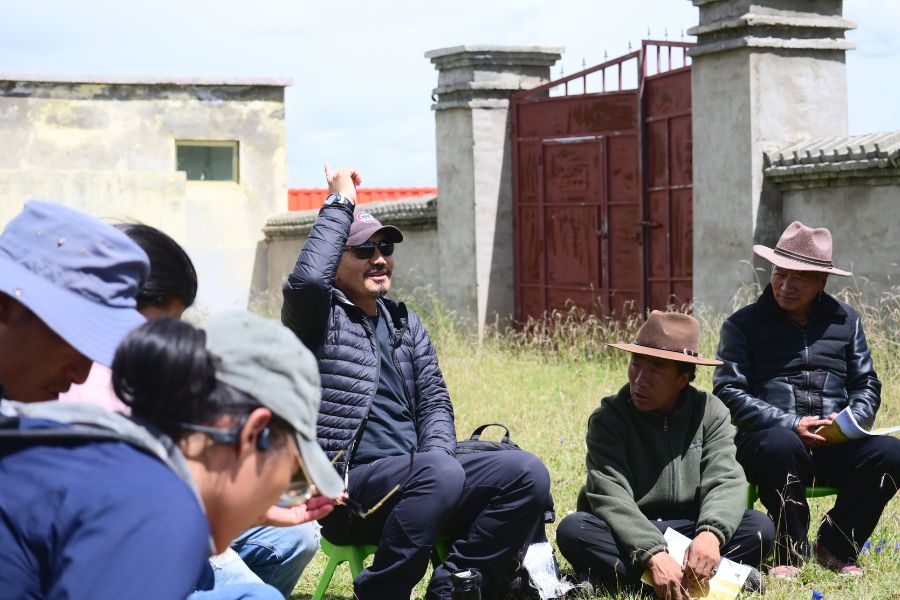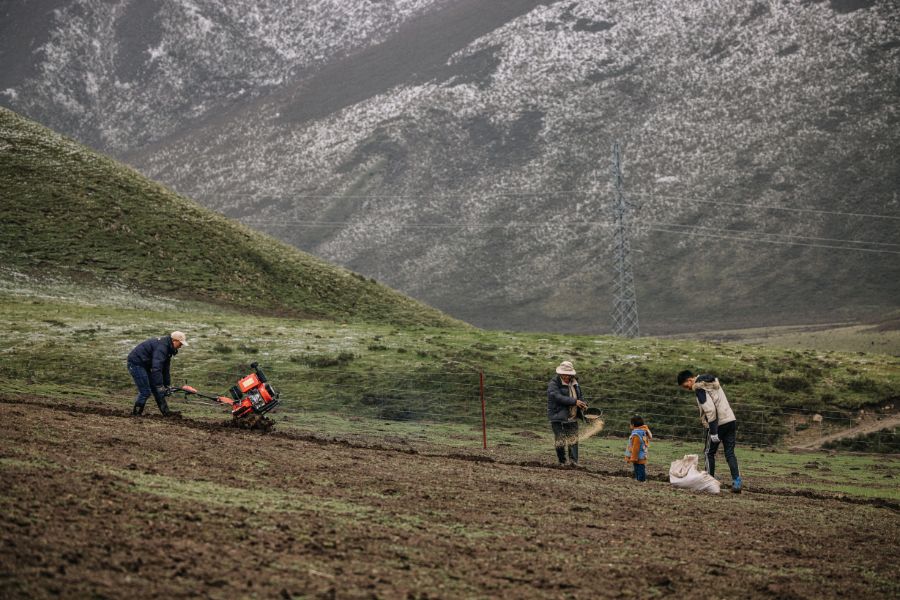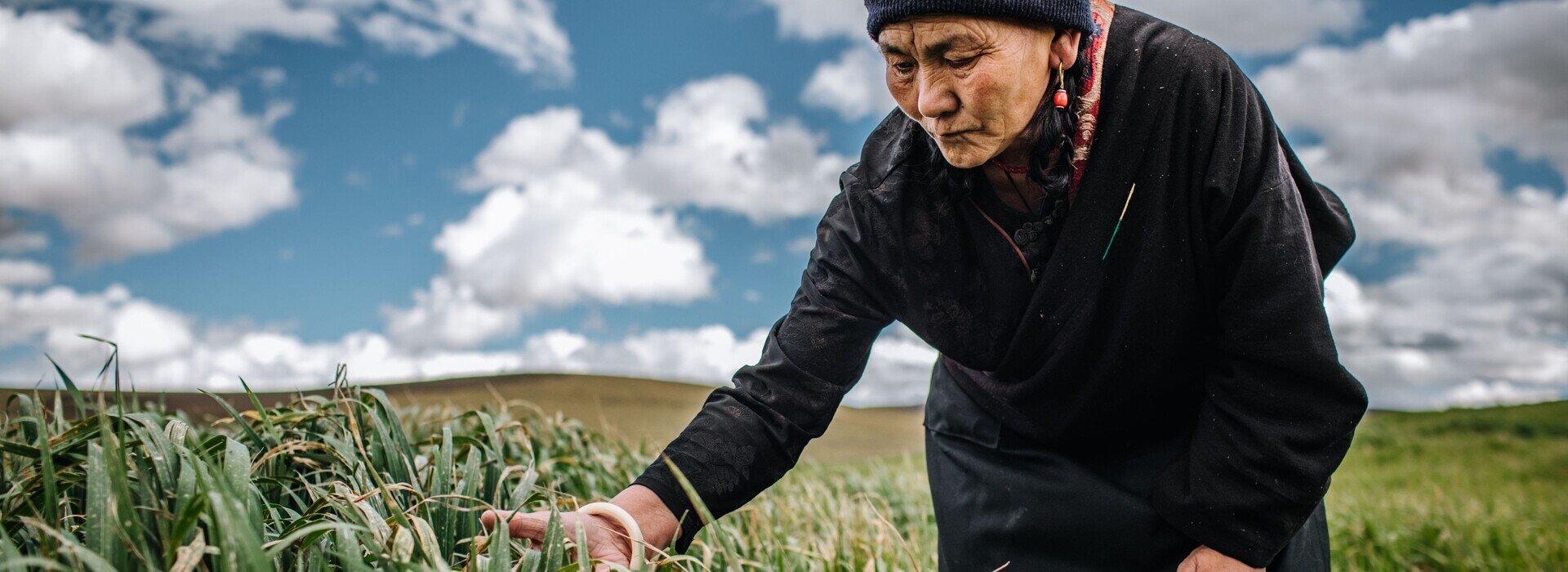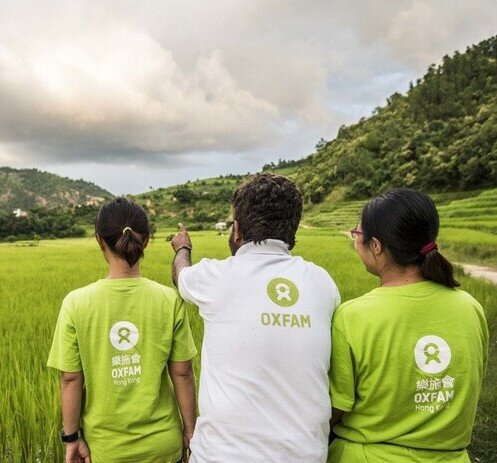Oxfam is working with the local government and partner organisations to implement climate adaptation projects on Jiatang Grassland in Qinghai Province, bringing new opportunities to this once fragile land.
Jiatang is located within Sanjiangyuan Nature Reserve on the Tibetan Plateau, where rivers and meadows nurture rich biodiversity. In recent years, Jiatang has been heavily impacted by climate change, with the warming trend significantly higher than both national and global averages. The grasslands and wetlands are degrading, and there are more frequent snowstorms, while human activities such as overgrazing threaten the plateau ecosystem, placing immense pressure on the livelihoods of local herders.
Since 2016, Oxfam has launched a series of climate adaptation projects in Jiatang to promote the ecological restoration of grasslands, support diversified livelihood development, and enhance the climate resilience and living standards of local communities.
Grassland Restoration Revitalises the Pastoral Area
Grassland degradation is a significant issue for herders in Jiatang. Recently, uneven rainfall, strong winds, and heavy precipitation have eroded the topsoil, causing severe desertification and soil erosion. This has greatly reduced the ecological functions of alpine grasslands, such as protecting water sources, preventing soil erosion, and regulating the climate.
In response, Oxfam has organised a series of ecological restoration actions. Since 2016, we have supported partners in Sanjiangyuan area to conduct climate vulnerability surveys, identifying key areas with high vulnerability. In 2020, we conducted a survey on climate change risks and responses in Jiatang grassland, proposing effective risk response methods for herders, communities, governments, and NGOs. Based on this, we promoted large-scale planting of environmentally adaptive forage species, which received positive responses from the herders. During the 2023 planting season, over 100 people worked together to restore 600 acres of grassland. In September of the same year, a grassland restoration seminar was held in Jiatang, where participants exchanged experiences on planting methods, grassland management, and climate adaptation. These actions not only helped restore degraded grasslands but also increased herders' awareness and participation in ecological protection. In 2024, during the evaluation of the grassland restoration effectiveness, everyone agreed that the planting efforts were effective. One herder said, "after sowing the grass seeds, the meadow has steadily regained its vitality, leading to improved health for the livestock. Herders frequently visit to monitor the grassland, eagerly awaiting its transformation into a lush and vibrant landscape".

The grassland restoration seminar held in Jiatang in September 2023.
However, we know that the harsh environment of the Qinghai-Tibet Plateau makes nutrient cycling, soil formation, and vegetation renewal slow, making grassland restoration quite challenging. Despite these difficulties, support from various sectors of society has greatly motivated local people for the restoration of Jiatang grasslands.

The herders actively participate in the community's grassland restoration efforts.
Oxfam Hong Kong's climate adaptation projects in Qinghai also include training on sustainable grazing, diversified livelihood development, forage subsidies, and support for herders in glacier monitoring and climate disaster risk management. These efforts comprehensively enhance the climate adaptation capacity of local communities and improve herders' income and development opportunities. In the future, we will continue to strengthen cooperation with local governments, partners, and communities to promote more innovative climate adaptation and sustainable development solutions.




